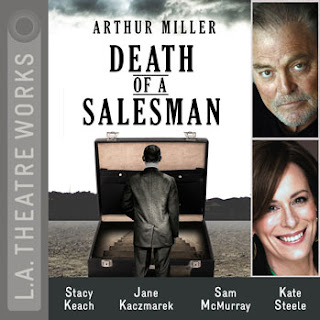Wonder
by R.J. Palacio
narrated by Diana Steele, Nick Podehl and Kate Rudd
Ⓟ 2012, Brilliance Audio, Inc.
8 hours, 6 minutes
Children, Ages 8-12
The world is a hard place. And people are bastards. And kids are cruel. Especially to kids like Auggie Pullman.
August "Auggie" Pullman was born with a severely mal-formed face and raised in the relative shelter of his home and neighborhood environs - which is not to say that he has been shielded from public scrutiny or the visceral reactions he provokes upon those who chance on him. From outright screams of horror to glances stolen peripherally, Auggie is all too aware that he is a freak show and an outcast. But after years of home schooling, Auggie's parents decide to send their son to a private school in Manhattan. Entering fifth grade as a new kid is a challenge anywhere at anytime for anyone, but for Auggie, without proven social skills and a history of ostracism, the prospect is particularly daunting. Wonder tracks Auggie's first year in school from several perspectives: from Auggie himself; his sister, Olivia ("Via"); his best friend Jack; Via's boyfriend, Justin; and from Via's best friend, Miranda. What follows is a chronicle of the failings and triumphs of Auggie and the people close to him as he struggles with the transition to a wider world and proves that while "the universe has not been kind to Auggie," the scales are not irredemptively tilted against him either:
"…it’s not all random, if it really was all random, the universe would abandon us completely. and the universe doesn’t. it takes care of its most fragile creations in ways we can’t see. like with parents who adore you blindly. and a big sister who feels guilty for being human over you. and a little gravelly-voiced kid whose friends have left him over you. and even a pink-haired girl who carries your picture in her wallet. maybe it is a lottery, but the universe makes it all even out in the end. the universe takes care of all its birds."
Wonder is a poignant story that well illustrates personal triumphs as well as a sort of karmic justice in play. Issues are all resolved as a testament to adversity-forged character, direct action or good fortune. If anything, perhaps Wonder is a little bit overly optimistic, reaching for that feel-good moment at the expense of reality; but then again, to a middle-grader it may prove to be a vaccine inoculating against the worldly cynicism and darkness that has crept into our common culture. Auggie's case is extreme and rare so it may take a mentor to make the correlation for the young listener between Auggie and other "outsiders" that are more commonplace.
Wonder is an amazing story and should have been well served by an audio edition; but unfortunately, it wasn't. While casting women in the roles of young boys in audio/voice-over is not uncommon, the purpose of doing so is to match the soprano voice of the unchanged male voice. Diana Steele's voice may have matched the range and been delivered in with the raspiness that the text mandated; but she could not let go of her feminine sensibilities enough to deliver the narrative convincingly enough as that of a young boy. One felt that these sections were being read by Marge Simpson - an idea that, once you've heard it, you can't "unhear" it. Kate Rudd, on the other hand, delivered the story's sections from Olivia and Miranda's point of view with earnestness, though she often rendered Auggie has having a voice of a mentally handicapped person rather than one with a damaged/repaired oropharnyx. As the text takes pains to indicate that Auggie not slow and that he has a raspy voice, Ms Rudd's choice was unfortunate and all the more glaring. Nick Podehl, while not the voice of a fifth grader, delivered his sections (Jack and Justin) truthfully and well. There aren't may textual cues to define Justin, so the challenge was in distinguishing Jack, a boy from the "other" side of Broadway. While initially, Nick Podehl's choice of an old-school New York accent for Jack was disconcerting, he does dial back after the first impression and the tone is effectively set.
The only other issues with the audio were minor production quibbles: the processing on Diana Steele's voice for the quotes before her sections sounded oddly "metallic;" during one of Kate Rudd's sections as Olivia there was an egregious edit (end of one word/beginning of next word had zero interstitial space) and, in the same (Olivia's) section there seems to be silences inserted in between some sentences which made for an odd cyclical wave sound. [To be fair though, I won't discount that there was something awry with my listening set-up. Even though I chased down cables and checked for sources of interference, I could not determine the source of what might have been a bizarre grounding issue.]
This is an Armchair Audies review :-)
See Also:
Heidi's review of Wonder (by R.J. Palacio; narrated by Diana Steele, Nick Podehl and Kate Rudd) at Bunbury in the Stacks!
My review of Same Sun Here (written and narrated by Silas House and Neela Vaswani) and Heidi's review at Bunbury in the Stacks :-)
My review of The Cheshire Cheese Cat (by Carmen Agra Deedy and Randall Wright; narrated by Katherine Kellgren and Robin Sachs) and
Heidi's review at Bunbury in the Stacks!
My review of Splendors and Glooms (by Laura Amy Schlitz; narrated by Davina Porter) and Heidi's Review of the same at Bunbury in the Stacks :-)

















